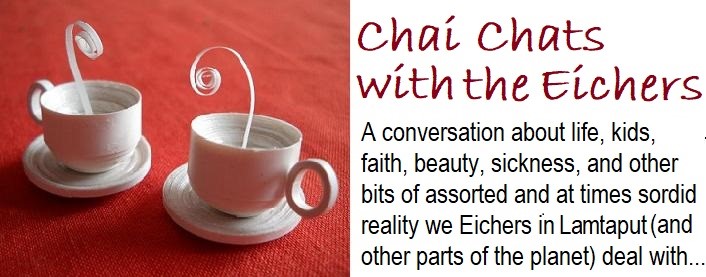 World AIDS Day comes once a year. December 1st.
World AIDS Day comes once a year. December 1st.A day to remember - and move forward.
A day to speak out - and pray hard.
Tomorrow is that day.
At Jeevan Sahara Kendra we know that every day is World AIDS Day. The disease does not just show up once a year. We are working with people day in and day out who have the disease. Illness does not observe special days and times.
But we also realise the value of a time when we can focus on the disease - and speak out in our own small ways.
So with a deep breath, here is what the Jeevan Sahara team plans to do tomorrow:
We start each day with prayer. This day will be no different - infact, we will be spending the first 1/2 hour specifically praying for the needs of people across our city - and nation - who have HIV.
One group of our JSK staff plan to participate in the Thane Municipal AIDS Rally - a procession of school children and others that will wind from the Civil Hospital to the large convention centre next to the Talao Pali - the lake at the heart of Thane. JSK will also host a small stall there along with other NGOs working on HIV issues.
 Three other groups of 2 each will fan out to meet auto-rickshaw drivers. Auto-rickshaws are a life-line of Thane - providing travel services through narrow streets. Many of the drivers are migrants from the north and away from families. Each will see at least 30 passengers a day. Some serve as ambulances to take sick people to doctors. We will be meeting the drivers while they wait to fill up at the CNG stations (only 3 in Thane - and long lines always). The JSK staff will talk to the drivers about HIV testing and pin a red ribbon to mark World AIDS Day.
Three other groups of 2 each will fan out to meet auto-rickshaw drivers. Auto-rickshaws are a life-line of Thane - providing travel services through narrow streets. Many of the drivers are migrants from the north and away from families. Each will see at least 30 passengers a day. Some serve as ambulances to take sick people to doctors. We will be meeting the drivers while they wait to fill up at the CNG stations (only 3 in Thane - and long lines always). The JSK staff will talk to the drivers about HIV testing and pin a red ribbon to mark World AIDS Day.We will also ask them (with utmost politeness of course) whether we can paste a sticker in their vehicle
 - so that passengers can see that HIV testing is available. We have already started this mini-campaign over the past 10 days and today if you take an auto-rickshaw ride in Thane, there is an increasingly good chance that you will see one of our JSK stickers - telling that HIV testing is available - and giving our contact number.
- so that passengers can see that HIV testing is available. We have already started this mini-campaign over the past 10 days and today if you take an auto-rickshaw ride in Thane, there is an increasingly good chance that you will see one of our JSK stickers - telling that HIV testing is available - and giving our contact number.Another team of two - James D'Costa and Ashis Karthak are making their way down to Mumbai to give a talk at the head office of RPG industries (well known as the maker of CEAT tires). They will be holding two awareness sessions for employees at the head office.
In the afternoon one of our teams will meet with the parents from a local child-daycare centre - and give them a talk about HIV/AIDS.
Sometime during the morning we are also expecting an interview with one of the Mumbai FM radio stations that has decided to highlight our work on World AIDS Day.
And in the middle of all of this we will continue to see patients at the centre - and in the afternoon - the home-care teams will visit key positive friends in their homes to continue the work of caring for people with HIV.
Finally - at the end of the day, we will be saying goodbye to our 3 interns from Union Biblical Seminary: Binson James, Ashis Karthak and John Jeebasilan with a small farewell getogether a.
Its going to be a BIG day!





















































